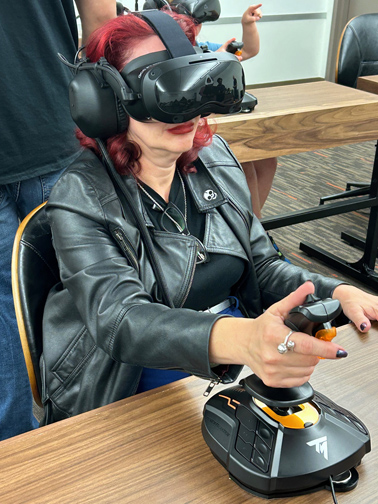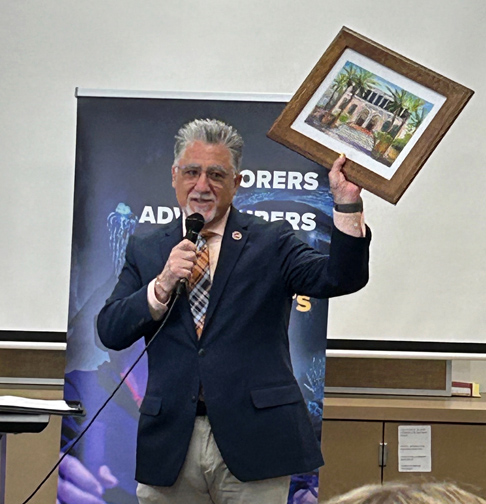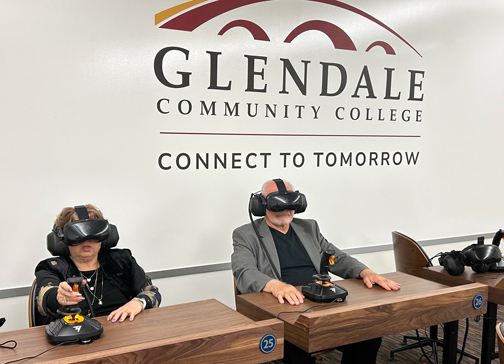
Photos by Robin GOLDSWORTHY
By Robin GOLDSWORTHY
A celebration was held on May 16 of Glendale Community College’s (GCC) President’s Circle. The celebration was an opportunity to introduce the college’s newest addition: virtual reality technology.
College Superintendent/President Dr. Ryan Cornner welcomed the intimate gathering, taking time to laud the college’s Foundation for its fundraising efforts that resulted in the new technology being brought to the GCC campus.
He said, in part, that the purchase was the result of a “crazy idea.”
“Having a crazy idea can lead to a conversation,” he said.
State Senator Anthony Portantino was instrumental in securing state funding for the software, hardware and licensing (for five years) of the technology.

“Future funding will be dependent on what we want to do in the future,” said Corrner. “There is different VR that fits with different needs. I do foresee that investments will continue in VR but my hope is that it expands to different types of products that fit the needs of our college.”
GCC is the only community college in the world that has this type of VR technology – an acquisition resulting from a visit to the GCC campus.
“About two years ago I met [Dreamscape Immersive CEO] Walter F. Parkes through a colleague who specialized in educational technology,” said Corrner. “He visited the GCC campus.”

Parkes, the former head of DreamWorks Motion Pictures, drew on his work with big-budget, big-screen spectacles to help cofound Dreamscape Immersive, the company that’s behind the VR technology at GCC. Corrner first visited the Century City headquarters of Dreamscape Immersive with “cabinet level” supporters of the college – “deans, the vice president, the executive director of Glendale College Foundation,” he explained.
The second excursion included representatives from other college sectors that would benefit from the technology. Among them was biology faculty and others who would utilize VR.
Corrner said plans in the future include building a lab that incorporates “free roam elements.”
“We are in the process of building out a full VR room where you put on a headset and get a full body avatar,” Corrner said. “There will be full participation in the experience – walking around, reaching out and touching the other avatars. We’ll give students the full utility of virtual reality.”
Another goal of the program is to bring high school students onto the campus.
“What we want to do is work with biology students at [the high school level], approach the GUSD secondary instruction, find teachers who are interested [in this technology] and engaging them,” Corrner said.
At Thursday’s reception, attendees had the chance to experience VR. After being escorted into a room outfitted with VR headsets and other materials, guests were told what they would be experiencing. After putting on the headset, they were transported to an “alien zoo,” a colorful place where, using a joystick, they moved about to examine the inhabitants – some that appeared sickly.
Attendees, which ranged in age from an 8-year-old to those over the age of 70, reacted positively – and excitedly – to the VR experience.
“I didn’t want to take off my helmet!” one woman said.
And this was just the reaction Corrner hoped for.
He relayed a story of a former biology student who left the course to pursue other options.
“She said that had VR been available to her she might not have changed her major” – which is right in line with the goals of the program – and Corrner.
